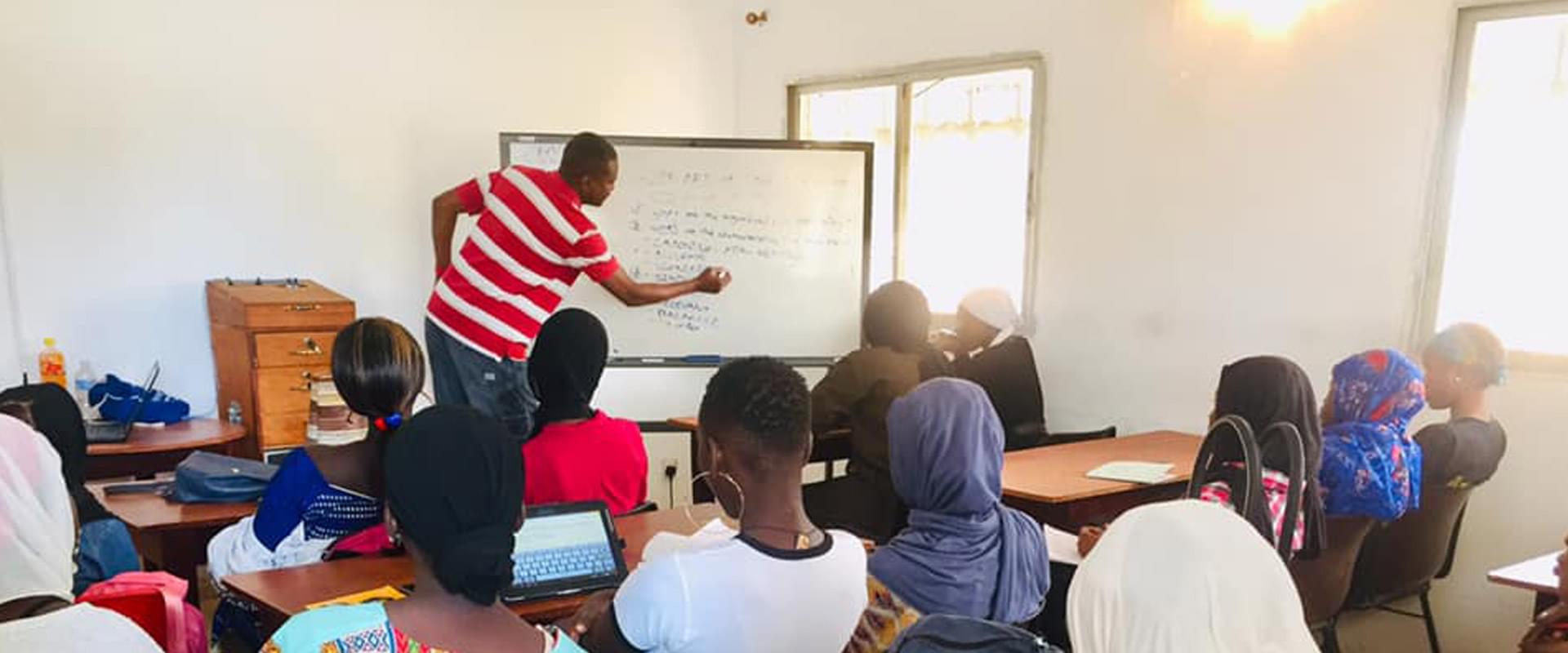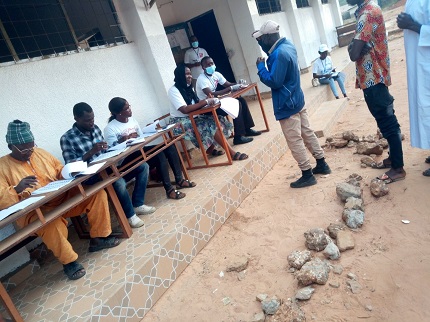
Mar 15, 2022 7:20 PM | Article By: Yusupha Jobe

Voters queuing to vote
Gambians are preparing for the National Assembly election scheduled on 9 April 2022, which will see them vote to elect a new batch of legislators to represent them in the House until 2027.
In The Gambia, transportation is one of the biggest challenges for many people, especially those living in the urban area and commute to and from work or school on a daily basis.
The daily commuting is increasingly becoming a misery for many commuters because there are always traffic jams on the roads; especially during rush hours. The situation increases daily and now becomes a nightmare for many.
Barely less than a month to the 9th April parliamentary election, voters outlined their priorities that would influence their decision to vote for a candidate, come the day.
Many voters have already decided to vote for candidates who would be their voice in the parliament and advocate solutions to their problems, one of which is to ease the current transportation challenge they grappled with.
Worry of voters
Abdoulie Sanneh, a student and a resident of Brikama who travels to school in Sere Kunda daily is eligible to vote in the 9th April election. Many issues would influence his choice of candidate, but key among them is better transportation system.
He would vote for that candidate who would present to the executive for urgent attention, his problems including the transportation constraint he faces now.
“Yes I will be voting in the parliamentary elections and transportation should be on top of the agenda for any candidate who wants to earn my vote,” the student expressed.
Like many others, Abdoulie acknowledged that the current transportation constraint needs urgent attention; and said parliamentarians as people’s representatives should be pushing at the National Assembly issues affecting their electorates.
“They will be our representatives at the decision-making body of the Nation. So issues affecting us are what they should be tabling there (Parliament). Transportation is a misery and the incoming National Assembly should take it seriously," he suggested.
Another Student, Lamin Jassey at the Management Development Institute (MDI) in Kanifing, commutes to school from Brikama every day.
Like his colleague, Lamin agreed that the difficulty in transportation should be every voter's concern and any politician whose agenda does not cover that should not be considered.
“For me, any candidate who does not have any plans to put forward the transportation problems to the executive for it to be addressed is not worthy to have my vote,” he said.
Jassey urged the rest of the electorates to vote wisely by voting for competent candidates who would stand for the interest of their people at the National Assembly.
Baboucarr Joof, Sinchu Baliya goes to work in Banjul, but getting to and from work in the morning and in the evening is always a nightmare.
He called his vote, his voice and would cast it for a candidate who will stand for his interest at the National Assembly to get the transportation problem immediately addressed.
“The executive cannot spend money without approval from the National Assembly. Therefore, if the executive brought a budget, the NAMs could cut from other areas of less importance and allocate it to the Ministry of transport to build roads. If more roads are built, it will help ease the transportation difficulties,” he noted.
The Sinchu Baliya resident assured that candidates eyeing the Old Yundum constituency seat who wants his vote should be ready to pioneer fixing the transportation constraint at the National Assembly, when elected.

Efforts by Transport Union
Omar Ceesay, President, Gambia Transport Union said the lack of good roads in the Gambia is a big factor in the transport difficulty, and added that the government should build more linking roads to ease the pressure on the highways.
"I think the government should work on more feeder roads. They should collaborate with the councils and municipalities to construct more feeder roads. So that if we have more feeder roads, the main roads will not be congested," he noted.
Ceesay informed that his union is working with the government to introduce a new system called road permitting or road licensing to curb the transportation constraint.
The new system, he added, would establish picking points and designate destinations for vehicles; saying ‘this would ease the many challenges commuters face daily’.
Commitment by candidate
Abdoulie Ceesay was the MP for the Old Yundum Constituency whose tenure just ended. He is seeking re-election under the National People's Party ticket.
He acknowledged that transportation is a problem affecting many people; and recalled advocating it among other issues affecting his people, during his just ended tenure.
"I think the focus should be adding more buses for GTSC and changing the company from a private one and placing it under a ministry that will be responsible for it," he suggested a solution.
Ceesay promised to continue advocating issues affecting his people at the National Assembly including the transport challenge, if re-elected.
Meanwhile, in recent years, The Gambia’s population has increased significantly hitting close to two million people, according to the 2013 Gambia Bureau of Statistics population census. This means that there is an increased number of commuters plying the road. As such, there is also an increase in the number of vehicles plying the roads compared to a few years ago.
This leads to traffic congestion which causes delay to many commuters in reaching their desired destination on time. Many times, commuters would spend a long time hustling for a vehicle for hours, to commute to and from work or home.
Now that the country braces electing representatives in the 58-member National Assembly; 53 of whom are elected by electorates in the 53 constituencies across the country; and 5 are nominated by the President as per the the 1997 Constitution, voters decided to vote in representatives who would advocate rapid solutions to their problems, mainly transportation.
Comments (0)
1 Likes
Leave your thought here
Your email address will not be published. Required fields are marked *